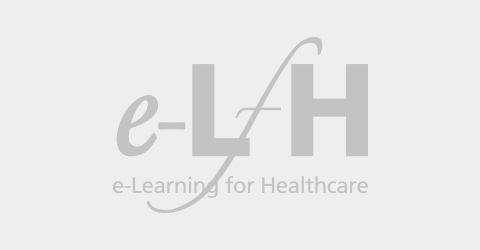About the Avoiding Term Admissions Into Neonatal units programme
This elearning programme will help healthcare professionals involved in the care of newborns, both in the hospital and community settings, to improve outcomes for babies, mothers and families through the safer delivery of care.
It is one of the outputs from the Atain programme (an acronym for ‘avoiding term admissions into neonatal units’) to reduce avoidable causes of harm that can lead to infants born at term (i.e. ≥ 37+0 weeks gestation) being admitted to a neonatal unit.
The elearning programme addresses the key learning needs identified through Atain, with a focus on four key clinical areas:
- respiratory conditions
- hypoglycaemia
- jaundice
- asphyxia (perinatal hypoxia–ischaemia).
As the Atain programme also identified the impact of mother baby separation, a specific session has been included to raise awareness of the importance of keeping mother and baby together.
Welcome to the Atain elearning programme from Dr Janet Rennie
This short video introduces you to the Atain elearning programme and outlines why it is so important for all of us to work together to prevent avoidable admission.
Clinical contributors
- Belinda Ackerman, Midwife Consultant, Guys and St Thomas Hospital
- Amanda Blake, Practice Development Nurse, Special Care Baby Unit, Bedford
- Dr Cheryl Battersby, Senior Registrar, Neonatology, Chelsea and Westminster Hospital, London
- Suzanne Cunningham, Interim Director of Midwifery & Professional Lead for Neonatal & Fertility Services, University Hospitals, Southampton
- Dr Sandy Calvert, Consultant neonatologist (Retired), previously, St George’s NHSFT
- Dr Ambalika Das, Consultant neonatologist, Barking, Havering and Redbridge Trust
- Dr Debbie Derbyshire, Consultant neonatologist, Birmingham Women’s Hospital
- Dr Sanjeev Deshpande, Consultant neonatologist, Shrewsbury and Telford
- Kim Edwards, Wessex Neonatal Preceptorship Programme Director, Winchester
- Dr Alan Fenton, Consultant neonatologist, Newcastle, President of BAPM
- Dr Kate Graham-Evans, Consultant neonatologist, Queen Alexandra Hospital Portsmouth
- Dr Kate Harding, Consultant obstetrician, Guys and St Thomas Hospital
- Dr Jane Hawdon, Consultant neonatologist, Royal Free Hospital
- Dr Caroline Henry, ST7 neonatal doctor, East Midlands
- Tracey Jones, Lecturer in Neonatal Nursing, The University of Manchester
- Dr Sheila Macphail, Consultant obstetrician (Retired), previously, Newcastle University Hospital
- Sue MacDonald, Midwifery Consultant and Educationalist
- Kelly Harvey, Advanced Neonatal Nurse Practitioner, Wythenshawe Hospital/Lecturer Practitioner, Manchester University
- Stephanie Michaelides, Programe Leader Graduate/Post Graduate Certificate In Neonatal Care, Middlesex University
- Dr Janet Rennie, Consultant neonatologist, UCLH
- Deborah Sharp, Senior Midwifery Lecturer, University of Hertfordshire
- Grazia Sinar, Clinical Matron for Neonatal Services, Hampshire Hospitals Foundation Trust
- Dr Wendy Tyler, Consultant neonatologist, Princess Royal Hospital, Telford
- Dr Lidia Tyszczuk, Consultant neonatologist, Imperial
- Michele Upton, Patient Safety Lead, Maternity and Newborn, NHS Improvement
- Reviewers 2024: Chuen-Wai Lee, Valentina Po, Michelle Fernandes, Rebecca Lee, Andy Moorey, Claire Wastakaran, Alexandra Lu, Noha Mokhtar, Anna Ntovolou, Aoife Hurley, Hanner Rutter, Karen Thirsk.
How to access
In order to access the Avoiding Term Admissions Into Neonatal units programme, you will need an elfh account. If you do not have one, then you can register by selecting the Register button below.
To view the Avoiding Term Admissions Into Neonatal units programme, select the View button below. If you already have an account with elfh, you will also be able to login and enrol on the programme from the View button.
NHS healthcare staff in England
The Avoiding Term Admissions Into Neonatal units programme is also available to NHS healthcare staff via the Electronic Staff Record (ESR). Accessing this elearning via ESR means that your completions will transfer with you throughout your NHS career.
Further details are available here.
Not an NHS organisation?
If you are not an NHS health or care organisation and therefore do not qualify for free access elfh Hub, you may be able to access the service by creating an OpenAthens account.
To check whether or not you qualify for free access via OpenAthens, you can view the eligibility criteria and register on the ‘OpenAthens’ portal.
Registering large numbers of users
If you are a HR, IT or Practice Manager and would like to register and enrol large numbers of staff within your organisation for access onto the Avoiding Term Admissions Into Neonatal units programme, please contact elfh directly.
Organisations wishing to use their own LMS
For HR departments wanting to know more about gaining access to courses using an existing Learning Management System please contact elfh directly to express interest.
More information
Please select the following link for more information on how to use the elfh Hub.



